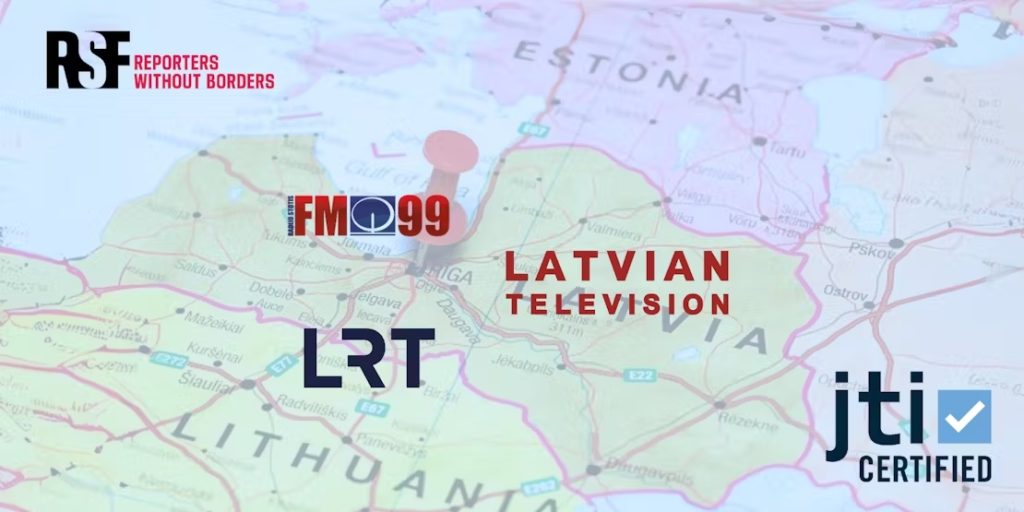The Lithuanian National Radio and Television (LRT), Latvian Television (LTV) and independent radio broadcaster FM99 are the first media in the Baltics to be certified according to the Journalism Trust Initiative (JTI) standard. Holding the JTI certification not only represents an achievement for the three media outlets, but also a significant advance for journalism in the region.
By adopting the JTI standard, LRT, FM99 and LTV reinforce their commitment to professional, ethical and transparent journalism. “[The JTI] certification is an opportunity for us to [sustain] our path to excellence [and guarantee] that our work is conducted in accordance with the most current trends in the industry, for example, by developing guidelines on the use of artificial intelligence in everyday work,” said Rudīte Spakovska, editor-in-chief of LTV News Service (see certificate). “The public can also be sure that Latvian Television, as a public media outlet, strives for the highest possible quality of work and processes.”
Monika Garbačiauskaitė-Budrienė, Director General of LRT (see certificate) declared that “as a public service broadcaster, we strive to set and promote the highest standards in our industry, encouraging improvements in journalism, ethics and content across the media landscape. The JTI provides us with benchmarks that guide us in upholding these standards and encourage the wider market to continually ‘do better’.”
“For us, the JTI certification is not only a formal procedure, but also a way to strengthen our position in the market and confidence in society,” commented Vilija Ramanauskienė, journalist for FM99 (see certificate). “In addition, the certification process provides a clear and uniform quality standard, which allows both audiences and funders to distinguish reliable media sources from disseminators of information of uncertain origin.”
JTI was created with the aim of supporting the media in their professional work and strengthening the resilience of the information space, fighting disinformation, fake news and propaganda. “It is essential for a modern media outlet to assess whether it meets international professional standards, especially at a time when it is becoming increasingly challenging to distinguish true information from falsehoods on various platforms in the information space,” Spakovska added. In spite of their countries top positions in Reporters Without Borders’ (RSF) World Press Freedom Index, news publishers in Estonia, Latvia, and Lithuania face growing challenges, including Russian disinformation campaigns or the recent “political neutrality” audit of LRT which could threaten its editorial independence.



